Peugeot 308 SW vs VW ID.4 - Differences and prices compared
Costs and Efficiency:
Looking at overall running costs, both models reveal some interesting differences in everyday economy.
Peugeot 308 SW has a a bit advantage in terms of price – it starts at 30100 £, while the VW ID.4 costs 34600 £. That’s a price difference of around 4452 £.
In terms of energy consumption, the advantage goes to the Peugeot 308 SW: with 15.20 kWh per 100 km, it’s barely noticeable more efficient than the VW ID.4 with 15.60 kWh. That’s a difference of about 0.40 kWh.
As for range, the VW ID.4 performs clearly perceptible better – achieving up to 569 km, about 159 km more than the Peugeot 308 SW.
Engine and Performance:
Power, torque and acceleration are the classic benchmarks for car enthusiasts – and here, some clear differences start to show.
When it comes to engine power, the VW ID.4 has a convincingly edge – offering 340 HP compared to 195 HP. That’s roughly 145 HP more horsepower.
In acceleration from 0 to 100 km/h, the VW ID.4 is significantly quicker – completing the sprint in 5.40 s, while the Peugeot 308 SW takes 7.70 s. That’s about 2.30 s faster.
In terms of top speed, the Peugeot 308 SW performs somewhat better – reaching 225 km/h, while the VW ID.4 tops out at 180 km/h. The difference is around 45 km/h.
There’s also a difference in torque: VW ID.4 pulls convincingly stronger with 679 Nm compared to 300 Nm. That’s about 379 Nm difference.
Space and Everyday Use:
Beyond pure performance, interior space and usability matter most in daily life. This is where you see which car is more practical and versatile.
Seats: offers more seating capacity – vs .
In curb weight, Peugeot 308 SW is distinct lighter – 1484 kg compared to 1975 kg. The difference is around 491 kg.
In terms of boot space, the Peugeot 308 SW offers barely noticeable more room – 551 L compared to 543 L. That’s a difference of about 8 L.
In maximum load capacity, the VW ID.4 performs hardly perceptible better – up to 1575 L, which is about 92 L more than the Peugeot 308 SW.
When it comes to payload, VW ID.4 slight takes the win – 551 kg compared to 508 kg. That’s a difference of about 43 kg.
Who comes out on top?
Overall, the VW ID.4 shows itself to be is largely superior and secures the title of DriveDuel Champion.
It convinces with the more balanced overall package and proves to be the more versatile choice for everyday use.
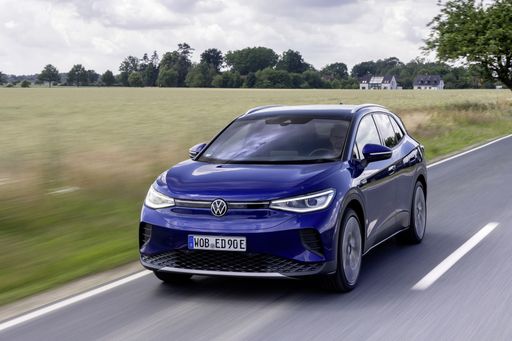 @ Volkswagen AG / VW Media
@ Volkswagen AG / VW Media
VW ID.4
Costs and Consumption
View detailed analysis
Engine and Performance
View detailed analysis
Dimensions and Body
View detailed analysis
Peugeot 308 SW
The Peugeot 308 SW blends French flair with estate practicality, dressing up daily chores in a surprisingly handsome package. Inside it's cleverly laid out and comfortable, and the composed, entertaining drive makes family duty feel a little less like a chore.
details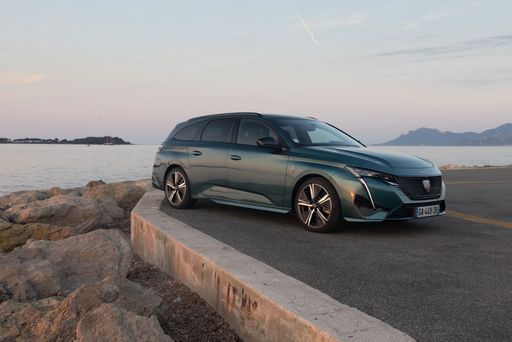 @ Peugeot / Stellantis Media
@ Peugeot / Stellantis Media
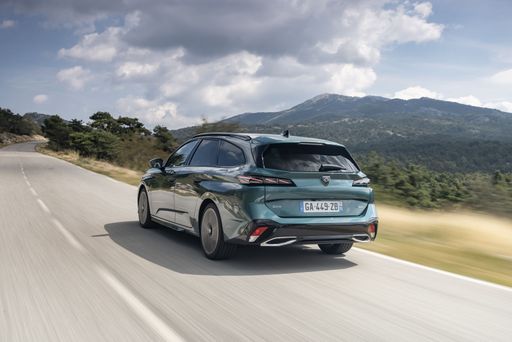 @ Peugeot / Stellantis Media
@ Peugeot / Stellantis Media
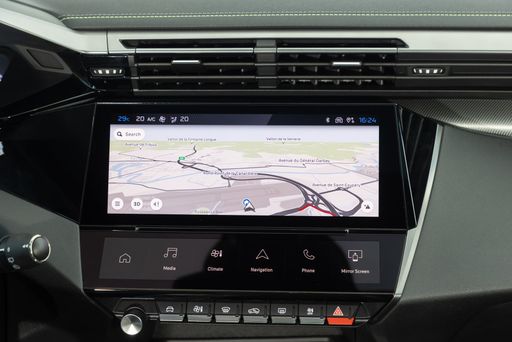 @ Peugeot / Stellantis Media
@ Peugeot / Stellantis Media
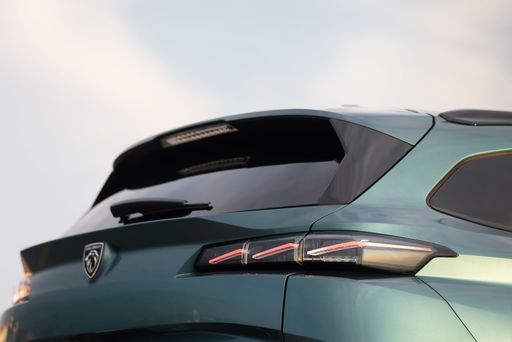 @ Peugeot / Stellantis Media
@ Peugeot / Stellantis Media
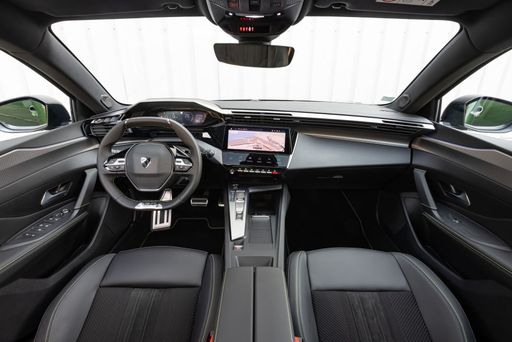 @ Peugeot / Stellantis Media
@ Peugeot / Stellantis Media
VW ID.4
The VW ID.4 is a calm, roomy electric SUV that turns everyday driving into a quietly confident experience, its practical packaging and smooth manners tailored perfectly for family life. Volkswagen's solid build and intuitive interior tech mean you get electric practicality without the sci‑fi theatrics, making the ID.4 a sensible, surprisingly likable choice for most buyers.
details @ Volkswagen AG / VW Media
@ Volkswagen AG / VW Media
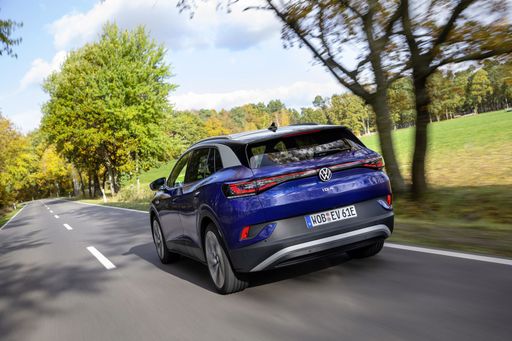 @ Volkswagen AG / VW Media
@ Volkswagen AG / VW Media
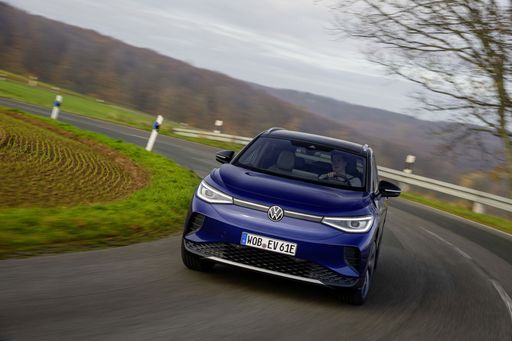 @ Volkswagen AG / VW Media
@ Volkswagen AG / VW Media
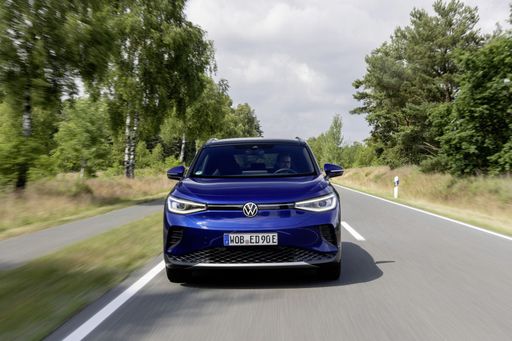 @ Volkswagen AG / VW Media
@ Volkswagen AG / VW Media
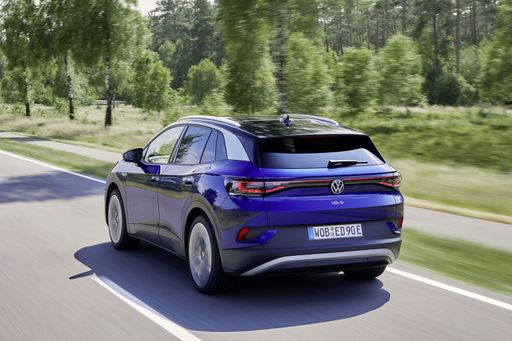 @ Volkswagen AG / VW Media
@ Volkswagen AG / VW Media
 @ Volkswagen AG / VW Media
@ Volkswagen AG / VW Media
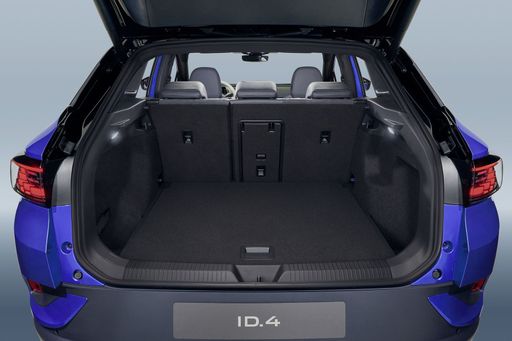 @ Volkswagen AG / VW Media
@ Volkswagen AG / VW Media
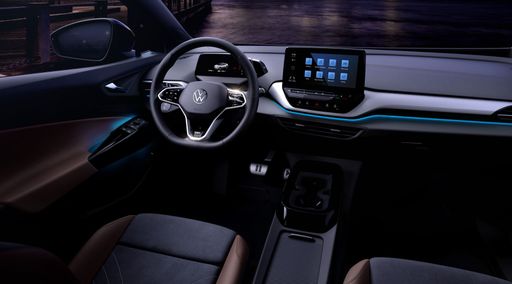 @ Volkswagen AG / VW Media
@ Volkswagen AG / VW Media
 @ Peugeot / Stellantis Media
@ Peugeot / Stellantis Media
|
 @ Volkswagen AG / VW Media
@ Volkswagen AG / VW Media
|
|
|
|
Costs and Consumption |
|
|---|---|
|
Price
30100 - 43800 £
|
Price
34600 - 47200 £
|
|
Consumption L/100km
2.3 - 5.1 L
|
Consumption L/100km
-
|
|
Consumption kWh/100km
15.20 kWh
|
Consumption kWh/100km
15.6 - 17 kWh
|
|
Electric Range
78 - 410 km
|
Electric Range
356 - 569 km
|
|
Battery Capacity
0.40 kWh
|
Battery Capacity
52 - 77 kWh
|
|
co2
0 - 130 g/km
|
co2
0 g/km
|
|
Fuel tank capacity
42 - 52 L
|
Fuel tank capacity
-
|
Dimensions and Body |
|
|---|---|
|
Body Type
Estate
|
Body Type
SUV
|
|
Seats
5
|
Seats
5
|
|
Doors
5
|
Doors
5
|
|
Curb weight
1484 - 1783 kg
|
Curb weight
1975 - 2248 kg
|
|
Trunk capacity
467 - 551 L
|
Trunk capacity
543 L
|
|
Length
4636 mm
|
Length
4582 - 4584 mm
|
|
Width
1852 mm
|
Width
1852 mm
|
|
Height
1438 mm
|
Height
1619 - 1634 mm
|
|
Max trunk capacity
1402 - 1483 L
|
Max trunk capacity
1575 L
|
|
Payload
417 - 508 kg
|
Payload
511 - 551 kg
|
Engine and Performance |
|
|---|---|
|
Engine Type
Petrol MHEV, Diesel, Plugin Hybrid, Electric
|
Engine Type
Electric
|
|
Transmission
Automatic
|
Transmission
Automatic
|
|
Transmission Detail
Dual-Clutch Automatic, Automatic Gearbox, Reduction Gearbox
|
Transmission Detail
Reduction Gearbox
|
|
Drive Type
Front-Wheel Drive
|
Drive Type
Rear-Wheel Drive, All-Wheel Drive
|
|
Power HP
131 - 195 HP
|
Power HP
170 - 340 HP
|
|
Acceleration 0-100km/h
7.7 - 10.9 s
|
Acceleration 0-100km/h
5.4 - 9 s
|
|
Max Speed
170 - 225 km/h
|
Max Speed
160 - 180 km/h
|
|
Torque
230 - 300 Nm
|
Torque
310 - 679 Nm
|
|
Number of Cylinders
3 - 4
|
Number of Cylinders
-
|
|
Power kW
96 - 144 kW
|
Power kW
125 - 250 kW
|
|
Engine capacity
1199 - 1598 cm3
|
Engine capacity
-
|
General |
|
|---|---|
|
Model Year
2025
|
Model Year
2023 - 2025
|
|
CO2 Efficiency Class
C, D, B, A
|
CO2 Efficiency Class
A
|
|
Brand
Peugeot
|
Brand
VW
|
Is the Peugeot 308 SW offered with different drivetrains?
The Peugeot 308 SW is available as Front-Wheel Drive.
The prices and data displayed are estimates based on German list prices and may vary by country. This information is not legally binding.
